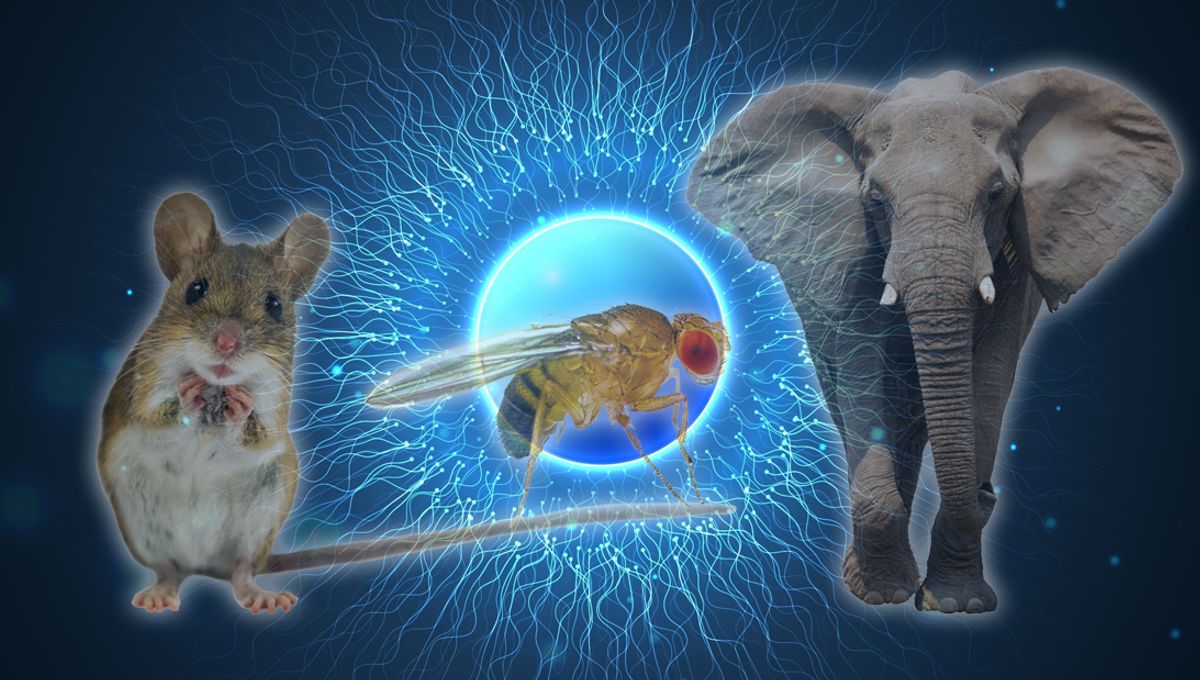
Life is a hard slog, just look at conception. There’s a goal – the egg – but there’s not enough to go around. Sperm must compete with everything they’ve got to be the one that makes it, lest they wind up a wasted warrior in the fight for life. They have to compete against their siblings, as it were, released from the same individual, but then – what’s this? Some unfamiliar sperm is tailing you from the rear. Another male has mated with this female, and the race is on.
This competition has seen animal sperm develop all kinds of weird, wonderful, and occasionally rather unsettling ways to get to the front of the queue. It’s not a one-size-fits-all rule as to what size, shape, or movement works best, and when it comes to the world’s longest sperm? The winner might surprise you.
The elephant, the mouse, and the fly
Three animals that demonstrate this best are elephants, mice, and flies. One is enormous, the other less so – but still considerably larger than the last. It seems obvious, then, right? Who’s packing the longest swimmers? Oh, sweet summer child, how wrong you are.
In terms of sperm length, the elephant actually comes in last. In second place, we have the mouse, but leading at the front by a considerable distance is, yes, a fly. Why? Let’s get into it.
Fly sperm: The longest sperm in the animal kingdom
The fruit fly Drosophila bifurca has the longest sperm of any animal on Earth. At 6.35 centimeters (2.5 inches) long, it’s about the length of a walnut. Yes, that does indeed make it longer than the fly’s body size. About 20 times longer, in fact.
The fly is able to fire out this silly-string-for-sperm because it comes tightly packed inside testes that make up 10 percent of its body mass. The sperm is coiled up and extends on release, making it giant, but only a few get released per mating event. Sounds like an odd strategy, until you remember that fruit flies aren’t big on monogamy.
“Longer sperm are really good at displacing their competitors from the female reproductive tract, which gives them an advantage in the competition for fertilization,” said Stefan Luepold, first author on a 2016 paper about fruit flies’ giant sperm. “Sexual selection thus favors longer sperm.”
Mouse sperm: Team Goldilocks
This curious trend of big surprises in small packages continues as we look at mice, which have longer sperm than elephants. Again, this is an adaptation driven by the fact that if a male mouse mates with a female, there’s a good chance he’s not the only one to do it.
A mouse, though smaller than an elephant, is much bigger than a fly, so why does it have shorter sperm? It comes down to the trade-off between body size and competition. When you’re dealing with a very small female reproductive tract, you don’t need to worry about sperm getting lost as much, so you can afford to invest in a smaller number of longer, more competitive representatives.
Once we start to scale that reproductive tract up a bit, the risk of losing a sperm or two along the way becomes greater. If you’ve only sent out a handful of fighters, will the whole encounter have been a waste of energy?
To prevent sperm getting diluted over a large racetrack, it seems mice have retained some of their competitive strength with long’ish sperm (about 124 micrometers), but there are more of them (in the region of 9.5 million per ejaculation). Now, we come to the elephants…
Elephant sperm: Safety in numbers
An elephant’s sperm is on average 56 micrometers long, making it half that of a mouse. Embarrassing, you might think, until you hear how much of it is coming out.
Per elephant ejaculation, it’s thought there are as many as 200 billion sperm. They really are playing the numbers game, and with good reason. Having complex and impressive sperm is no use if it never makes it to the desired location, so elephants essentially hedge their bets by investing more. Their sperm are many, but small, and the trend continues into the animal kingdom. Spare a thought for whales, who have sperm that’s almost 1,000 times shorter than that of a fly.
As they say, size isn’t everything.
Source Link: The Longest Sperm On Earth Is 20 Times The Animals’ Body Size, But Whose Is It?